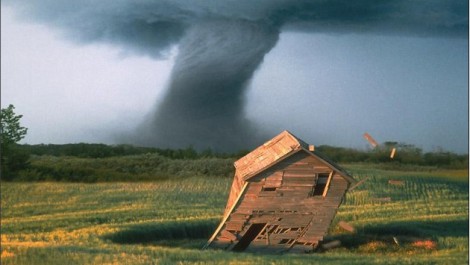We all want the sun to be shining, rainbows and unicorns. But as most of us know, this is not the reality. When it comes to finances, we don’t want to think that it will all come crashing down, but most people reading this would have experienced – it can & does. The sad part is, often it is not ‘you personally’ that has brought about the financial disaster, but the banks and corporations built to help us, bringing down the system.
From the 2008 financial crisis, the collapse of Enron or Lehman Brothers, those ‘too big to fail’ simply did, and we as the smaller end of town were left to pick up the pieces, and our lives and put them back together again.
So, the trick is to be prepared, take responsibility so that next time you are left standing. Here are seven ways to financially prepare for a disaster.
1. Keep a cash stash.
Although you may not be comfortable with this, it is a good idea to keep some cash hidden around your home. In the event that your bank’s servers crash or are unavailable – which they are often are, a natural disaster where the banks may be open, it is always good to know that you have cash on hand in case of emergency.
2. Know your insurance coverage.
Something that most of us do, because we know we have to and don’t look at the fine print. Ensuring that we have the correct insurance is vital in case of an emergency. From property insurance which does not include floor cover, through to car insurance that doesn’t include theft you can be caught out if you don’t ensure you have the right amount.
3. Keep personal documents safe.
Personal documents are vital. It is important that you not only have the physical copies stored in a safe place, such as a safe or lockbox, but also that you have copies of items such as birth certificates, insurance documents and certified copies of your photo id kept offsite in a storage unit or even in a secure cloud-based system so, in case of emergency, you can access what you need to get back on your feet again – like your bank accounts.
4. Take photos for insurance purposes.
Insurance companies may take you to task on items you ‘claim’ you owned, but don’t have any proof. Ensure that you take photos of the ‘big ticket’ items as well as the tax receipt or proof of purchase and store them on a cloud-based server (such as iCloud or Google Drive) or CD ROM to store offsite to ensure you can prove what you had, how much it cost leave no wriggle room for your insurance agency.
5. Get payment protection.
If you had an accident, were unable to work for any reason or were let go from your job, could you still pay your bills? Most people don’t have enough savings on hand to sustain them for a long period of time, so payment protection is the answer. For a very small minimum amount, you can receive monthly payments to cover your mortgage repayments & other living expenses with ease. Really takes the pressure off in an otherwise untellable situation.
6. Sign up for online banking.
Online banking is critical in a disaster situation. They provide all the services you need, such as paying bills, moving cash and a range of other services. In the case of emergency, you should be able to access your online banking from wherever you can get phone reception from. Ensuring you are signed up for online banking before disaster strikes is a good way to prepare to be in the best position when you are in an emergency situation.
7. Get an emergency credit card.
Having an ‘emergency’ credit card is always a good practice to have. If you are forced to evacuate your home at a moments notice and have to book into a hotel, most will want a credit card. In addition, there is no predicting how long you will be or how much you will need, so it is always a good idea to be prepared with a credit card – just in case. In addition to disasters, if you are hit with any unexpected life events, such as emergency surgery or health care expenses, it can come in handy in more ways than one.




